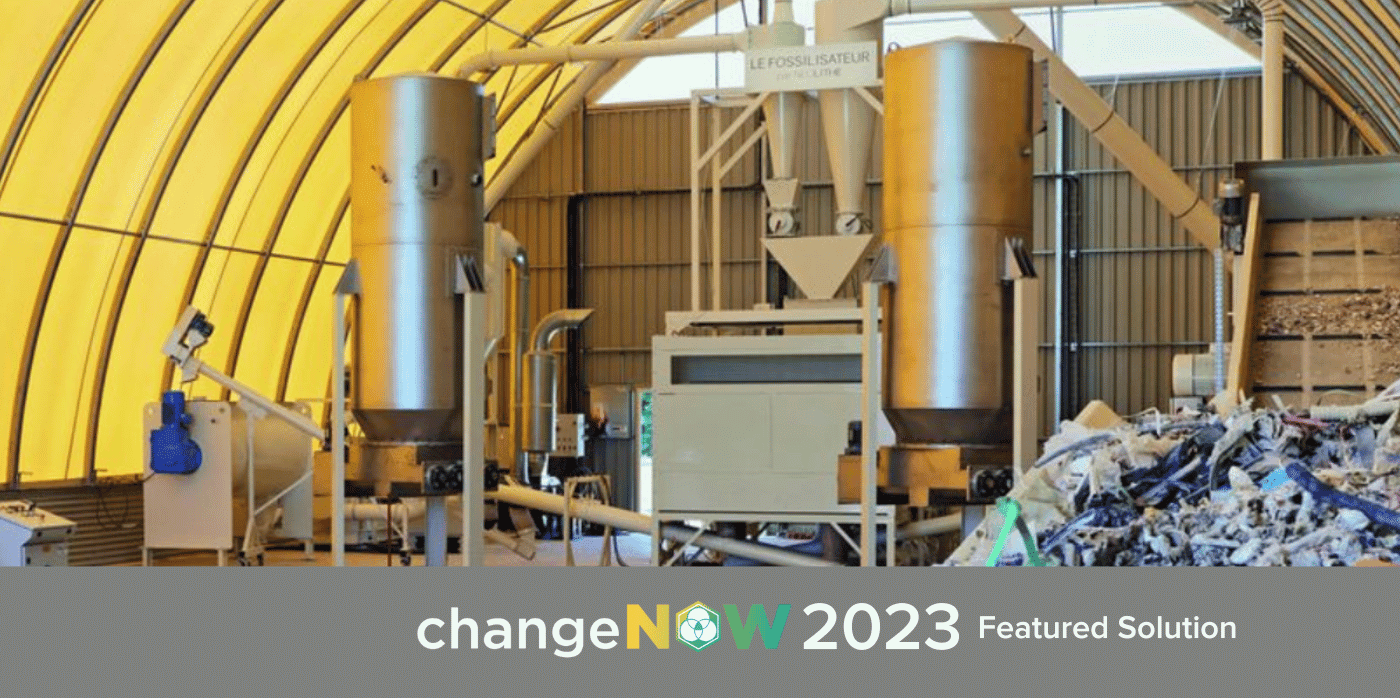
Spotted: Waste is a huge environmental problem. The world creates over 2 billion tonnes of municipal solid waste every year, with at least a third of that total not being handled in an environmentally friendly way. In addition, around five per cent of global CO2-equivalent emissions come from the treatment of this waste.
To tackle this, Néolithe has developed a new way of processing unrecyclable waste, with a solution that will limit waste and emissions, while creating a value-added product. Essentially, its technology speeds up the millennia-long natural fossilisation process.
The company’s patented emissions-free fossilisation process turns unrecyclable and non-hazardous waste into stones for the construction industry. Néolithe’s Fossilizator process works with ordinary industrial waste like plastics, textiles, wood, plaster, and insulation materials from deconstruction – waste that would otherwise go to landfill or be incinerated.
First, metals are removed from the materials so that they may be reused elsewhere. In the Fossilizator, the waste is then crushed into a powder and mixed with water and a low-carbon binder. Finally, the created paste is pressed to make a new mineral, called Anthropocite, which has the same technical and mechanical characteristics as traditional aggregates and can be used in road sub-bases and concrete. Anthropocite is also carbon-negative – instead of biogenic waste within the used construction materials breaking down and releasing carbon dioxide, this carbon gets captured and stored in the final aggregate products.
The construction industry is booming with innovations that help reduce waste and protect the environment. Springwise has spotted an AI platform to optimise concrete recipes, and construction blocks made from sugarcane.
Written By: Anam Alam

